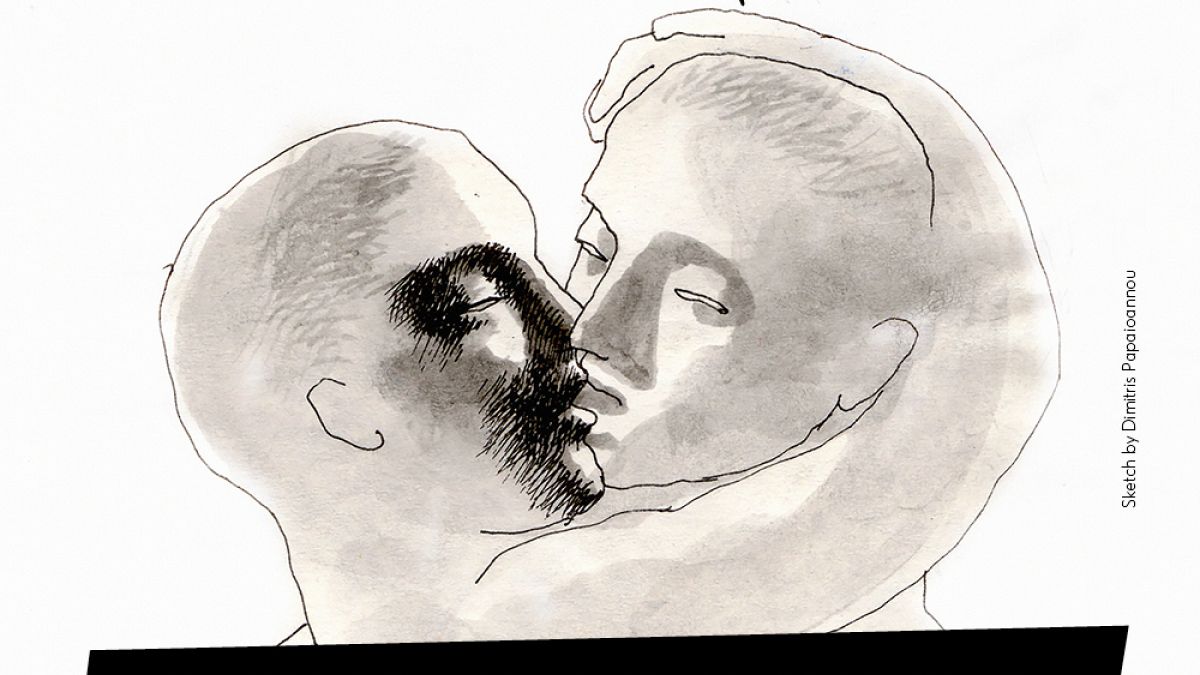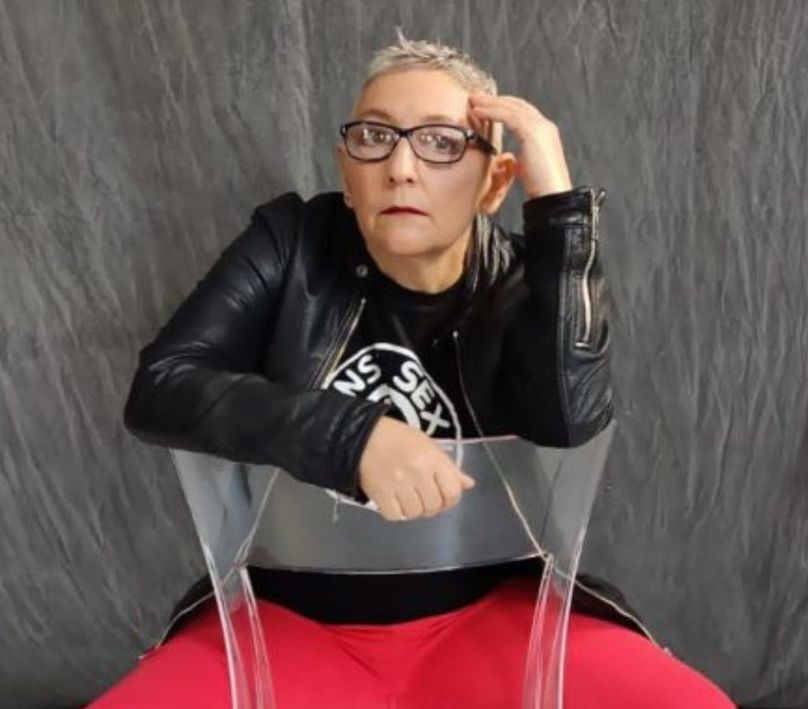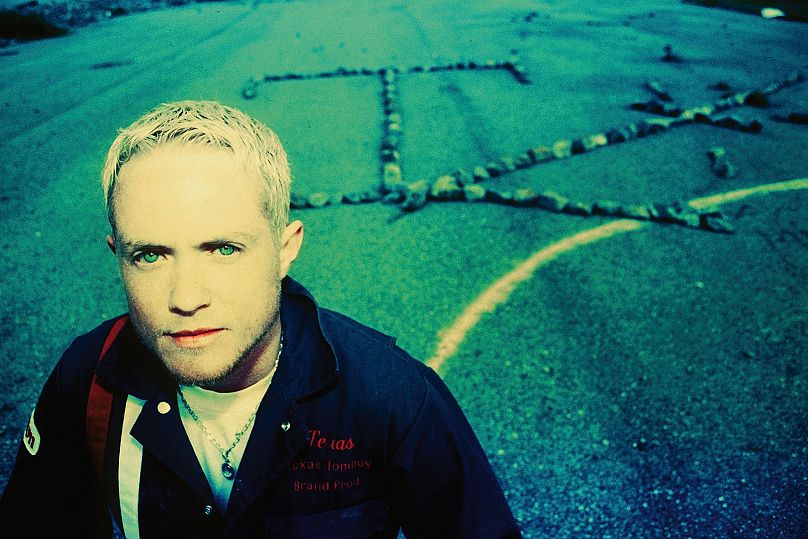Greece's Citizen Queer film festival aims to pay tribute to the origins of LGBTQI+ representation in cinema, along with its pioneers. For so long hidden in the shadows, now the art form is finally getting to shine in the spotlight, writes Elise Morton.
“It’s a big deal, it brings tears to my eyes.”
These are the words of Maria Katsikadakou, better known as Maria Cyber, speaking about this year’s edition of the Thessaloniki International Documentary Festival (TIDF).
Renowned as one of the first lesbian activists on the Greek LGBTQI+ scene, she has served as an adviser for the 2024 festival’s extensive (and timely) celebration of LGBTQI+ documentary cinema, entitled Citizen Queer.
To say she’s excited about it would be an understatement. “I feel over-the-top happy, enthusiastic, and excited to be part of it,” says Katsikadakou of her consultant role in the “grand tribute” to queer documentary, which is showcasing more than 25 films, along with a rich programme of discussion-based events.
She tells Euronews Culture of her time as founder and head of Outview Queer Film Festival – Greece’s biggest queer film festival – struggling with limited funds and sponsors; to have a “huge institution” like the Thessaloniki International Documentary Festival support the LGBTQI+ community, she explains, is “precious and priceless”.
Promoting pioneers
Running from 7-17 March 2024, the festival sees Thessaloniki, Greece’s second city, draw filmmakers and documentary enthusiasts from around the globe.
Under the guidance of Katsikadakou – together with Rico Johnson-Sinclair, founder of the UK-based CineQ festival and inclusion practitioner for festivals including the Berlinale and Cannes; and Dutch writer, curator and visual artist Simon(e) van Saarloos – the festival has curated a selection of ground-breaking titles to screen.
“The films of the Citizen Queer tribute unravel the origins of LGBTQI+ representation in art and cinema, pay homage to the pioneers of the movement and brave fights in difficult times,” explains TIDF Director Orestis Andreadakis, “[they] explore the always-evolving themes of LGBTQI+ identity, introduce us to legendary figures of the community, challenge the status quo gaze on LGBTQI+ that unfortunately is yet to disappear.”
The screening list includes the 1979 cult classic Race d'Ep (The Homosexual Century), which traces the roots of gay liberation to the mid-19th century, and the pioneering Gendernauts (1996) by Monika Treut, one of the first films to delve into the theme of gender transition.
Greek films also have a strong showing, with highlights such as Betty (1979) by Dimitris Stavrakas, which narrates a day in the life of the transgender queer activist Betty Vakalidou, and AKOE/AMFI: The Story of a Revolution (2023), tracing the legacy of the first Greek LGBT movement and its magazine.
For queer and country
Forming part of a wider tribute to the filmmaker, TIDF is showing Panayotis Evangelidis’s Tilos Weddings (2022), which centres on the first gay and lesbian weddings held in Greece in 2008, later ruled invalid in the courts.
Evangelidis’s film, and Citizen Queer more broadly, has never been more topical – Greece legalised same-sex civil marriage last month, the first Christian Orthodox country to do so, and in spite of significant opposition from the influential Greek Orthodox Church.
"I am always happy when one of my films is screened at a festival, let alone when it is one that contains a social demand that has now been answered to a great extent,” Evangelidis tells Euronews Culture.
“The legalisation of the same-sex marriage is a landmark in the history of the country,” says Andreadakis, who believes the decision signals the start of a new chapter for queer cinema. “It is safe to say that new prospects are in store for queer cinema in Greece, as far as the audience reach and the overall interaction with society as a whole,” he reflects.
The reason for the timeliness of Citizen Queer is twofold; in addition to the recent legalisation of same-sex marriage (together with adoption by same-sex couples), 2024 marks the arrival of EuroPride in Thessaloniki. From 21-29 June 2024, the pan-European international LGBTQI+ event will enthral the city, of course with a vibrant parade, but also with concerts, walking tours, fairs, movie screenings, and theatre performances, together with space for discussion of salient issues at a three-day human rights conference.
It will be a “celebration of tolerance, acceptance, love, and diversity, which will leave its mark in Greece,” Andreadakis describes. For Katsikadakou, Citizen Queer is partly about “preparing the ground for this huge fiesta”.
What makes these events particularly impactful, Andreadakis and Katsikadakou believe, are their inclusivity, broad appeal, and ability to weave queer culture into the everyday life and very fabric of Thessaloniki. “Citizen Queer is educational for the ones that don’t know [about queer culture], [and provides] nostalgic moments for the ones that know,” Katsikadakou says, “This big event that is accepted by everyone – known simply as ‘the festival’, such is its pre-eminence – is coming now to actively support the big LGBTQ winning goal: EuroPride 2024 in Thessaloniki.”
“Both the Citizen Queer tribute and EuroPride 2024 go way beyond the scope of target-oriented events,” Andreadakis agrees, “They are part of our everyday lives, of our world that keeps on moving forward even with small steps.”
For the festival director, far more than just interesting film screenings and colourful parades are at stake: “In reality, all these actions are interconnected links to a chain of change,” he says.
The 26th Thessaloniki International Documentary Festival continues until 17 March 2024.





